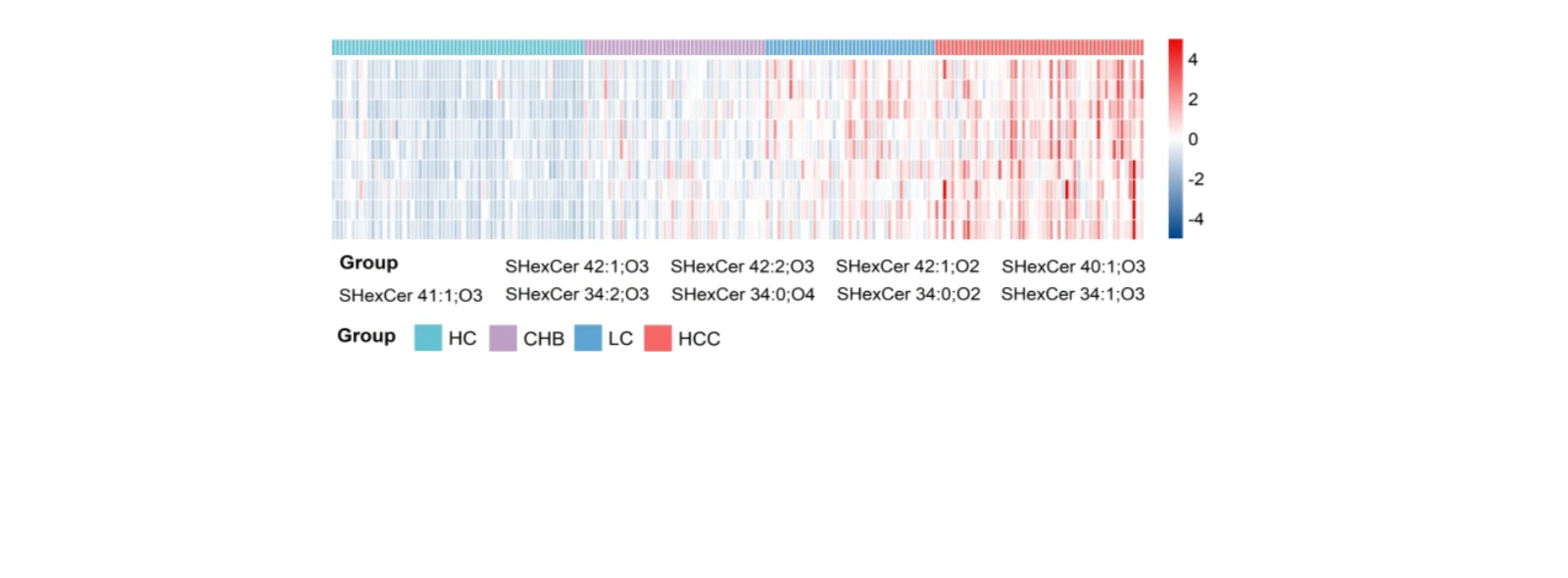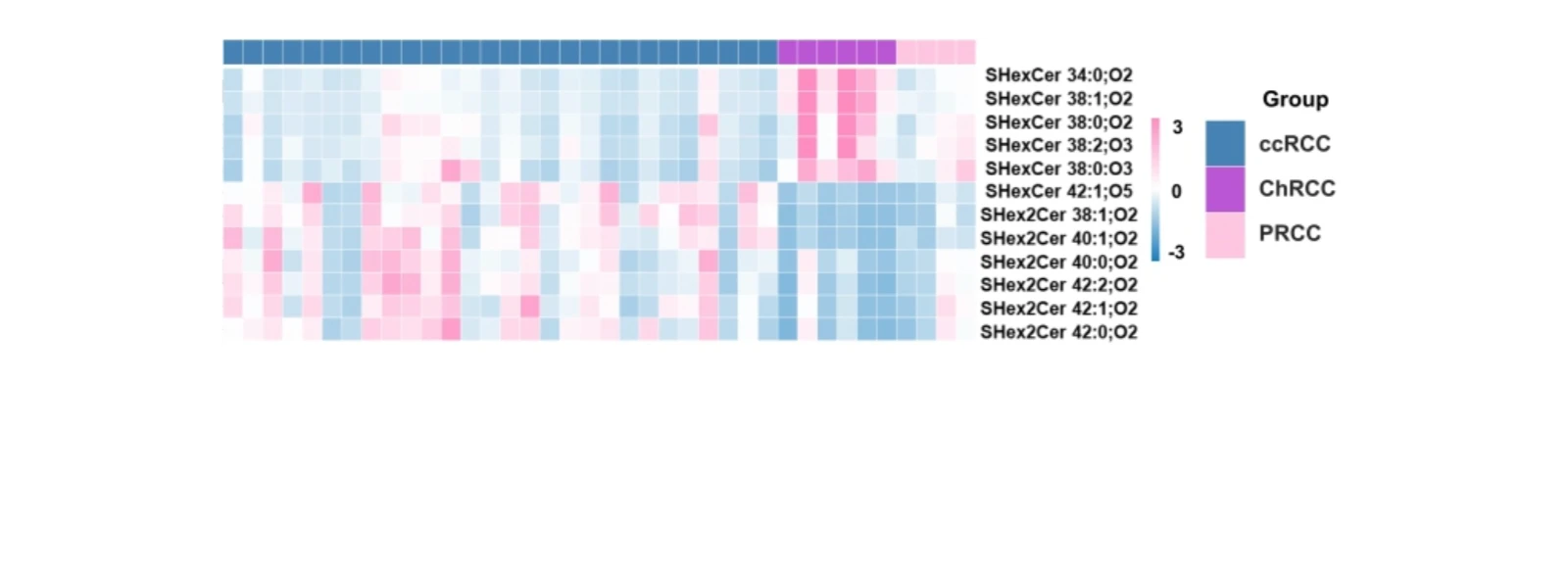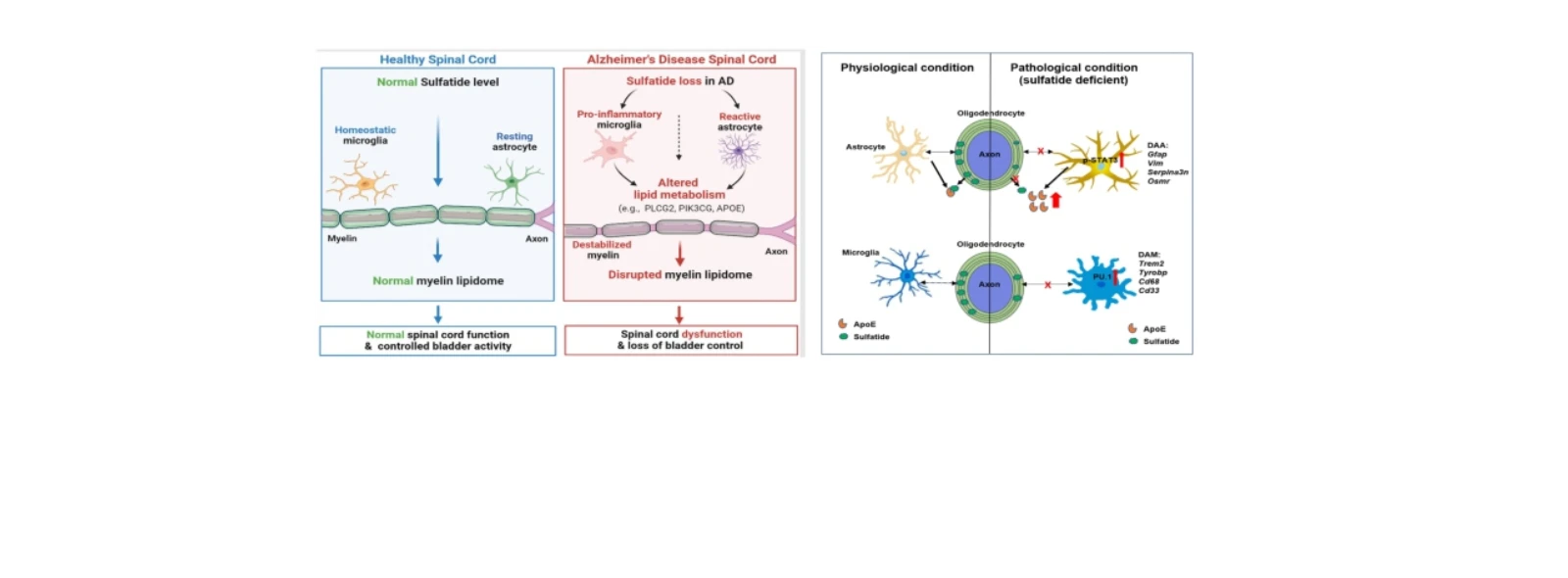-
EN




Specific Lipids Panel
Sulfatides are 3-O-sulfo-galactosylceramides synthesized from sphingolipids and specifically degraded by arylsulfatase A. They are involved in various biological processes, including neural function, insulin secretion, immunity, and pathogen response.
Abnormal sulfatide metabolism or expression is linked to cell survival, apoptosis, proliferation, vasodilation, cardioprotection, and has been associated with neurological, cardiovascular, liver, and cancer-related diseases.
Mass spectrometry analysis of sulfatide panels offers significant potential for biomarker discovery and physiological research.

Product Consultation
(1) Progression Assessment of Hepatocellular Carcinoma (HCC)
SHexCer levels show a gradual increase across healthy controls (HC), chronic hepatitis B (CHB), liver cirrhosis (LC), and HBV-related hepatocellular carcinoma (HCC), indicating its potential as a biomarker for HCC progression.

(2) Subtyping of Renal Cell Carcinoma
Different subtypes of renal cell carcinoma exhibit distinct sulfatide metabolic profiles.

(3) Alzheimer’s Disease
Loss of SHexCer in the myelin sheath triggers neuroglial inflammation and lipid metabolism disorders, leading to myelin dysfunction and associated bladder dysfunction.
